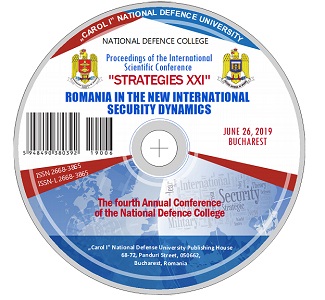THE REALISM OF THE STRATEGIES BY THE CURRENT LEADERS -
A POSSIBLE TREND IN TRAINING FOR FUTURE LEADERS
THE REALISM OF THE STRATEGIES BY THE CURRENT LEADERS -
A POSSIBLE TREND IN TRAINING FOR FUTURE LEADE
Author(s): Popescu Răducu
Subject(s): Education
Published by: Carol I National Defence University Publishing House
Keywords: : realism; national interest; leaders; strategic thinking.
Summary/Abstract: A realistic approach to identifying national interest, as well as its development and realization, is the only way of thinking about national and international relations. Low attention in the way of educating and training new generations of leaders to a special concern for cultivating the capacity to realistically evaluate events, closes the paths to a range of perspectives and alternative theories that can help us understand the different aspects of the modern world. Increasingly, over the last few years, a strategic leadership gap has emerged. The different approach and the total lack of consistency with the national interest are found in several disciplines, but the way to remedy this shortcoming has circumvented both the trainers and the educators. In an attempt to change this old thinking, General Martin Dempsey, USA, in the past two years as President of the Joint Chiefs, issued White Papers on Mission Command, Arms and Common Education, and a Memorandum of Wishes leadership attributes. Sometimes, instead of designing a strategic leadership program to meet the requirements of the 21st century, the military community continues to embrace the outdated practices of the past. If future leaders will have more realistic thinking, maybe the outlook on tense relationships will no longer be black or white, with good people and bad people, good and bad countries, no matter what they are. We believe that the greater number of political and military leaders who realistically relate and assess the complicated context of international or national communication can lead to a much more appreciated internal climate for the people and provide expected prospects for peace.
- Page Range: 150-155
- Page Count: 6
- Publication Year: 2019
- Language: English
- Content File-PDF

